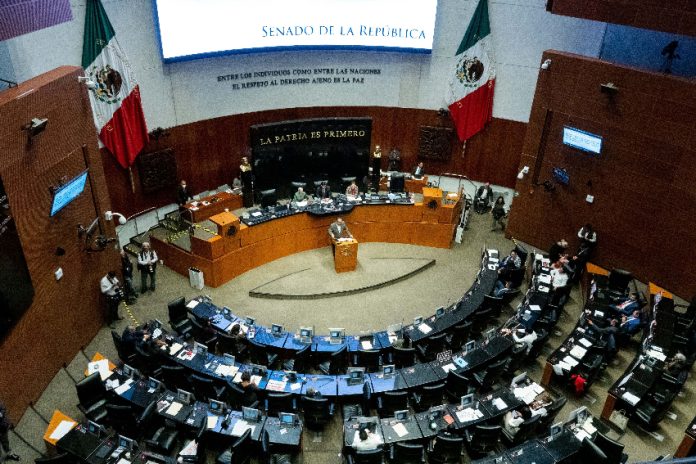How’s your math?
What’s two-thirds of 128?
That’s the mathematical problem whose answer could be of vital importance this week when the 128 federal senators cast their votes on the Mexican government’s controversial judicial reform proposal.
Why? Because the constitutional bill — which was approved by the Chamber of Deputies last week — needs the support of a supermajority, or two-thirds of the Mexican Senate, to pass Congress.
In case you haven’t yet completed the calculation, two-thirds of 128 is 85.33.
So the number of votes needed to reach a two-thirds majority in the Senate is …? It depends who you ask.

According to Mexico’s System of Legislative Information, 86 votes are required if all 128 senators are present in the upper house.
That number — one more than the number of senators who represent the ruling Morena party and its allies — would appear to make sense.
Politicians of all persuasions sometimes present half-baked ideas, but none of the lawmakers is just half — or one-third — of a human-being. Thus finding one-third of a vote to get to 85.33 votes in order to reach a supermajority is not a viable option.
So 86 it is!
Not so fast! Haven’t you heard of rounding down?
Senate President Gerardo Fernández Noroña certainly has.
On Sunday, the ruling Morena party senator claimed that a constitutional bill could be approved in the Senate with just 85 votes rather than 86.
“It’s like in school, when it was point four and below you rounded down to the number immediately below. When it was point six and above you rounded up to the number immediately above,” Fernández Noroña said.
“There is not 0.3 of a senator. From my point of view, in a strict sense, 85 senators would be enough,” he said.
Senator Adán Augusto López Hernández, Morena’s leader in the upper house, made the same argument last week.

Fernández Noroña claimed last Wednesday that Morena and its allies would have a “surplus” of support in the Senate, but he now appears less certain that at least one of 43 opposition senators will vote in favor of the reform that seeks to allow citizens to directly elect Supreme Court justices and thousands of other judges.
Francisco Burgoa, a constitutional law professor at the National Autonomous University, predicted there will be a constitutional crisis if Morena and its allies, the Labor Party and the Ecological Green Party of Mexico, attempt to push the reform proposal through the Senate with just 85 votes.
If they were to do so, they would be making an “incorrect interpretation” of the Constitution “given that 85 doesn’t exceed a supermajority” in the Mexican Senate, he said.
“Eighty-five is not more than 85.33 and having an absolute majority doesn’t give them the power to decide that this 0.33 can be left out or rounded down,” Burgoa said.
“There are precedents in the Senate where 86 votes have been demanded … to change the Constitution,” he said.
“Even Ricardo Monreal publicly acknowledged it at another time,” Burgoa said in reference to a remark the former Morena senator and current ruling party deputy made in 2022.
A vote on the judicial reform proposal could be held in the Senate as soon as this Tuesday.
Barring unforeseen circumstances, 128 fully-formed men and women will vote on the reform proposal that the government argues is needed to eliminate corruption in the judiciary, but which the opposition contends will threaten the independence of the nation’s justices, judges and magistrates.
Expect things to get rather interesting if the final vote count is 85-43 in favor of the constitutional bill.
With reports from El Financiero and Infobae
